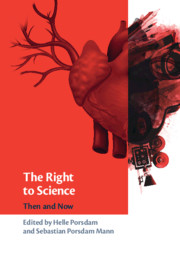The Right to Science
That everyone has a human right to enjoy the benefits of the progress of science and its applications comes as a surprise to many. Nevertheless, this right is pertinent to numerous issues at the intersection of science and society: open access; “dual use” science; access to ownership and dissemination of data, knowledge, methods and the affordances and applications thereof; as well as the role of international cooperation, human dignity and other human rights in relation to science and its products. As we advance towards superintelligence, quantum computing, drone swarms and life-extension technology, serious policy decisions will be made at the national and international levels. The human right to science provides an ideal tool to do so, backed up as it is by international law, political heft and normative weight. This book is the first sustained attempt at turning this wonder of foresight into an actionable and justiciable right. This title is also available as Open Access on Cambridge Core.
Helle Porsdam is Professor of Law and Humanities and UNESCO Chair in Cultural Rights at the University of Copenhagen, Denmark. She holds a PhD from Yale University in American Studies, has held fellowships at Harvard Law School; Wolfson College Cambridge; and was a Global Ethics Fellow with the Carnegie Council for Ethics in International Affairs. Her publications include Legally Speaking: Contemporary American Culture and the Law (1999), From Civil to Human Rights: Dialogues in Law and Humanities on the United States and Europe (2009), and The Transforming Power of Cultural Rights: A Promising Law and Humanities Approach (2019).
Sebastian Porsdam Mann is a DPhil researcher at the Faculty of Law at Oxford. He was educated in philosophy, psychology, and neuroscience at the University of Cambridge, where he did his first PhD in neuroethics. Sebastian has held postdoctoral positions in bioethics at Harvard Medical School and, as Carlsberg Foundation Postdoctoral Fellow, at the Universities of Copenhagen and Oxford.
